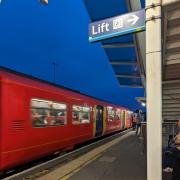
In the run up to the recently announced General Election, primary schools across the land have been coming to terms with a raft of possible changes to the curriculum.
Over the decades, a succession of governments have announced drastic changes only for the next administration to introduce their own. After Michael Gove’s controversial tenure as Education Secretary, all was calm until the advent of Prime Minister Theresa May who has promptly announced a potential ending of Key Stage 1 SATs in favour of an earlier assessment test. Teachers and teaching unions across the UK have welcomed the announcement but their joy has been tempered by fears of what the SATs may be replaced by.
The subject of what form national testing in schools should take has been discussed since time immemorial. Various models have been introduced and discarded and still it seems that no consensus can be reached to the detriment of the children themselves. A Year 2 teacher from Bromley when contacted for comment stated that: “as teachers we are under greater and greater pressure to produce results with a curriculum that changes all too frequently. School budgets are being slashed, we are losing our support staff and being asked to do more with less support and guidance”. She further went on to state that in her opinion the national testing system for Primary children is “broken and unable to effectively meet the needs of both children and teachers”.
Over the last few years, schools in Bromley have performed above the national average in both Key Stage One and Two tests, but even this prosperous borough has seen the number of teacher vacancies increase as teachers are following the national trend of over 40% leaving the profession within the first 5 years. If Bromley’s schools are to thrive then the profession must continue to find and retain the brightest talent, and continue to serve the best interests of its students.
In 2015 Bromley was ranked the 6th best performing borough for achieving level 4 or above in reading, writing and maths nationally. If results are an indication then Bromley’s future is bright and can be brighter still if the educational needs of the future generations is put ahead of political point scoring.
Shoaib Salim, Farringtons School






























